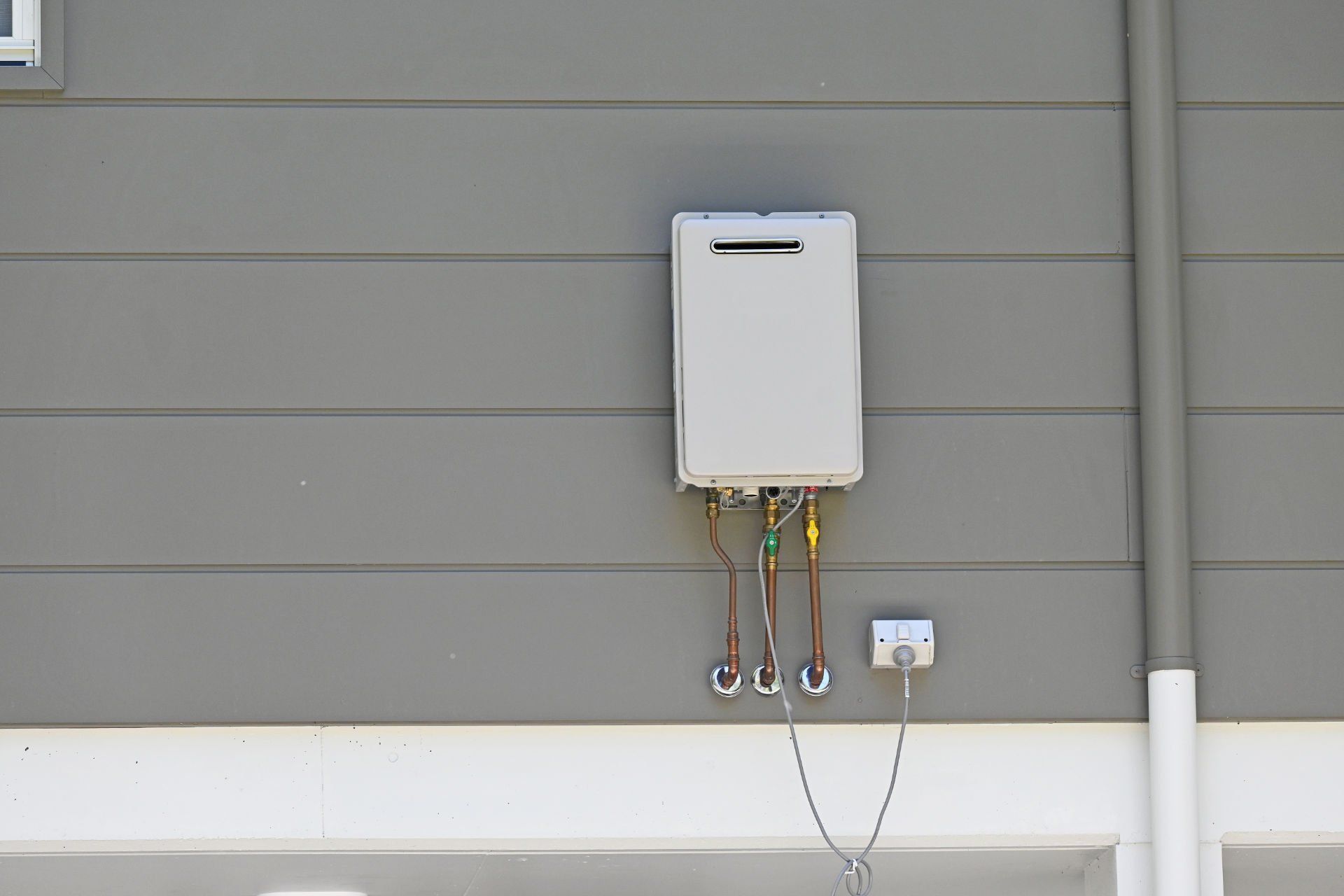Top 5 Reasons to Add A Tankless Water Heater
A Tankless Water Heater Is A Great Option for Your Long Beach Rental

Like every home, occasionally there comes a time when equipment needs to be replaced due to damage or it's at the end of its lifespan. A water heater is one of these. Water heaters have evolved over the decades with newer water heaters being tankless. As your water heater ages, consider the options available for replacements for your rental.
We invite you to consider the following five reasons to replace your aging tanked water heater with a new tankless water heater for your Long Beach rental property.
Lower Risk of Water Damage
When compared to a traditional water heater, a tankless water heater does not store any water. A traditional water heater holds anywhere from 30 to 80 gallons of water within its tank. Modern plumbing code requires tank-style water heaters to have a temperature and pressure relief valve to prevent ruptures or leaks. Over time the valve may begin to falter, and rust or mineral build-up can clog the pressure valve. It's not uncommon for older, unchecked water tanks to leak or explode causing thousands of dollars in water damage.
Space Saver
Traditional water heaters are big, roughly 60 inches tall and up to 24 inches wide holding 30 plus gallons of water. Many times water heaters will require a small room to keep them from taking up space in the home which can be used for storage or more living space. A tankless water heater on the other hand is normally 28 inches tall by 20 wide and only 10 inches deep because it doesn't need to store any water. This means that it no longer requires as much space as a traditional water heater.
Efficiency
Tankless water heaters only heat up to use hot water when needed. While a traditional water heater needs to maintain water heated continually. A natural gas-powered tankless water heater uses far less gas throughout the day. A gas-powered tankless water heater uses around 200,000 BTUs (British thermal unit) per use, while a tank water heater burns around 50,000 BTUs per hour. The annual savings can be attractive to potential tenants. It is estimated that on average a household can save hundreds of dollars on their gas or energy bills.
Extended Lifespan
The traditional tank water heater’s life span is 8 to 12 years, up to 15 with proper maintenance and care. As they age they will require more maintenance in order to avoid the risk of water damage. Tankless water heaters on the other hand can last 5 to 10 years longer and with proper maintenance, meaning they can last up to 20 years.
Gas or Electric
Both gas and electric-powered tankless water heaters provide all the previously stated benefits. Having the option of either is just an added convenience. Each Long Beach rental property will have unique circumstances, which means each home may require a different solution.
When looking for a gas-powered tankless water heater expect to pay over $1,000. Gas tankless water heaters are more complicated to install. Sometimes needing to reroute gas lines and install a venting system for combustion and exhaust. The overall operating costs, however, tend to be lower due to natural gas costing less than electricity in most areas.
Electric tankless water heaters can cost on average $600 and require dedicated power and the water lines to be rerouted. We highly recommend hiring a reputable electrician to do the installation. Since there is no combustion with electric tankless water heaters, fewer modifications may be required to install. One concern you may have with the electric option is whether or not your home is equipped to run the power necessary for it. If your Long Beach rental property’s power is not adequate to run the electric water heater then this option will be expensive.
There are still more reasons to consider upgrading to a tankless water heating system. If you need more information about switching to tankless water heaters or need help installing a new tankless system we invite you to call us at (562) 888-0247 or feel free to fill out our
free rental analysis to see what your rental could yield today.





